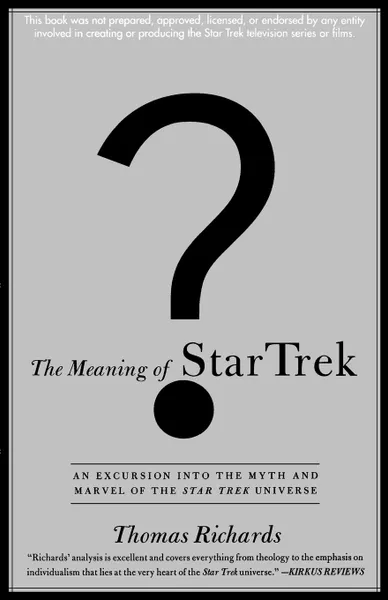The Meaning of Star Trek. An Excursion Into the Myth and Marvel of the Star Trek Universe 6+
Автор: Thomas Richards
208 страниц
Категория: Искусство и культура
ISBN: 9780385484398
Язык: Английский
📘 Before "The X-Files" there was "Star Trek." Unrivaled in the fanaticism and devotion of its fans, it was easily the most cerebral show of its age. "Star Trek" brought a literary sophistication to the raw material of science fiction and confounded all the formulas of television.The Meaning of Star Trek captures the essence of this timeless television masterpiece by examining it in the context of literary and social history, anthropology, myth, and religion: how it grew from the tradition of great science fiction writing; how the history of the show's Federation reconfigures our own; how its stories relate to classic myths; and how its tales of magic, marvel, and miracles appeal to our sense and suspicion of Western religion. By creating a universe with its own coherent nature and consistent set of rules, Richards argues that the series has the same integrity as a work of great literature or art, and should be judged as such. No other of the score of "Star Trek" books has dared explore what the series really means -- where it comes from, and why it is so popular.Truly the book to read while sipping coffee at the cafe at the end of the universe, The Meaning of Star Trek is the first to give the television series the analysis that proves it to be a vital bridge between the disparate worlds of classical literature and popular culture.
Мнения
